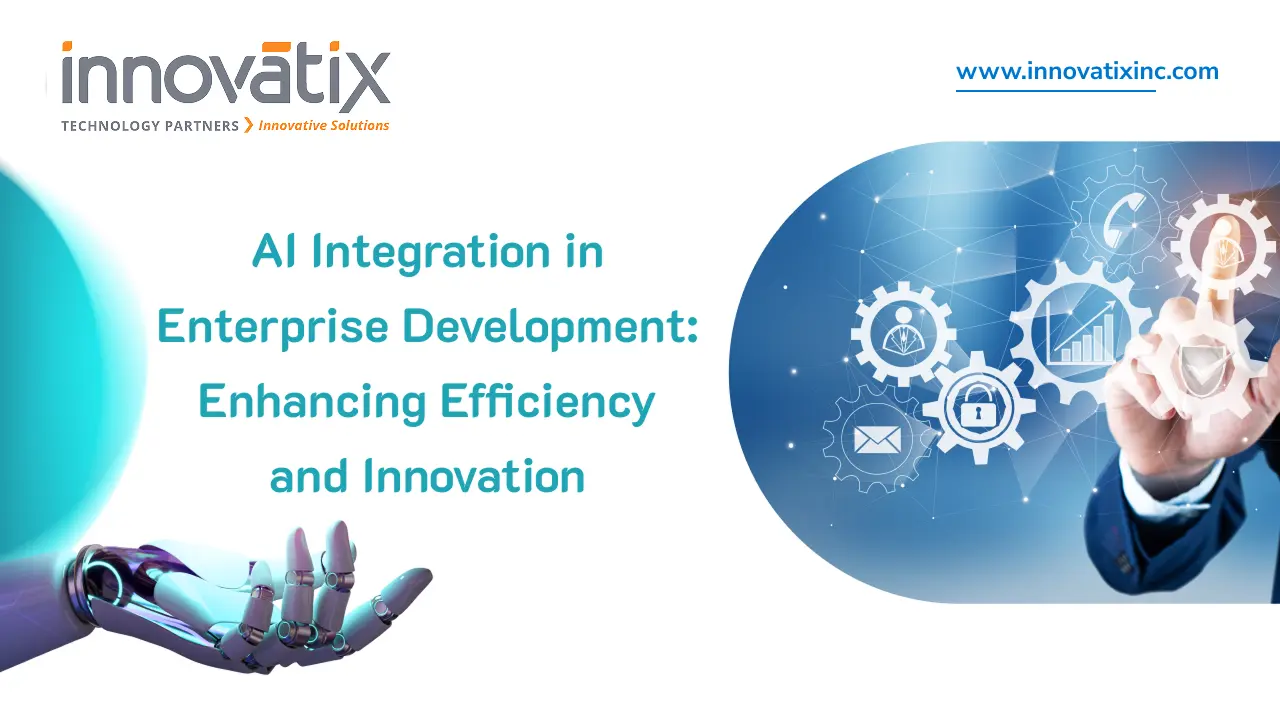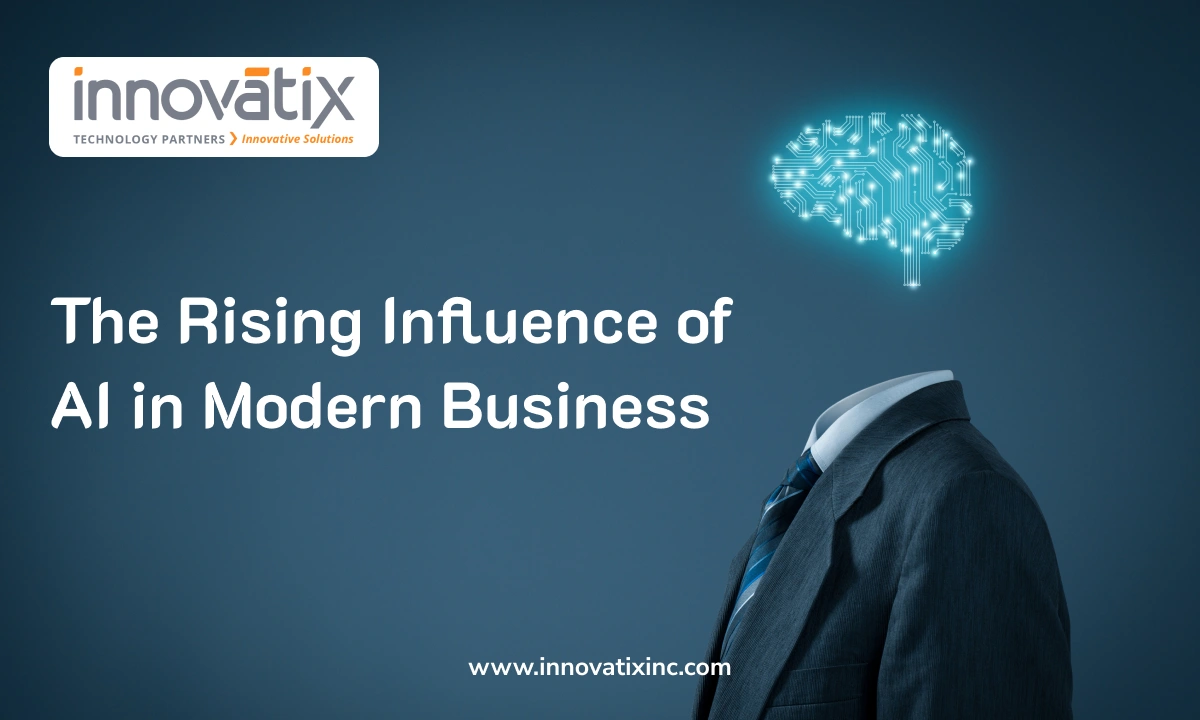AI Integration in Enterprise Development: Enhancing Efficiency and Innovation
Integrating artificial intelligence (AI) in enterprise development is no longer a futuristic concept but a present-day reality. As businesses compete in an increasingly digital landscape, AI offers unparalleled opportunities to boost efficiency, foster innovation, and create a competitive advantage. In this blog, we will explore how enterprises are leveraging AI to transform their operations, examine the top enterprise AI companies leading the charge, and discuss the diverse range of AI applications available today. By the end, it will become evident why AI integration is essential for modern enterprises seeking long-term success. The Current Landscape of Enterprise Development Enterprise development refers to the strategic and operational efforts businesses undertake to enhance productivity, streamline workflows, and promote growth. This process traditionally involved a combination of manual labor, human decision-making, and software applications aimed at improving efficiency. While these approaches have proven effective, they fall short of meeting the demands of today’s fast-paced digital world. AI’s introduction into enterprise development is a game changer. Unlike traditional methods, AI enterprise solutions can process massive amounts of data, recognize patterns, predict future trends, and make informed decisions with minimal human intervention. These capabilities enable businesses to achieve efficiencies previously unimaginable. Shifting from Manual to Intelligent Processes Historically, enterprise development focused on automating repetitive tasks and organizing data in ways that made it more accessible. While these tools helped streamline operations, they often required significant human oversight and regular updates to remain relevant. AI, however, goes beyond automation by introducing intelligence into these processes. AI-powered systems not only automate routine tasks but also learn and adapt over time. Machine learning algorithms allow these systems to continuously improve their performance based on real-time data. This shift from manual intervention to autonomous systems represents a significant leap in enterprise development, drastically enhancing productivity and enabling more informed decision-making. The Growing Impact of AI on Enterprise Development AI is making its presence felt across industries, and its impact is growing exponentially. Several compelling statistics underscore the increasing relevance of AI in enterprise development: These statistics illustrate AI’s crucial role in shaping the future of business operations, driving enterprises to rethink how they approach development. Enhancing Efficiency Through AI The key advantage of integrating AI in enterprise development significantly boost operational efficiency. Enterprise AI solutions can handle repetitive tasks, analyze vast data sets in real-time, and provide actionable insights that were previously beyond reach. AI not only enhances existing processes but also empowers businesses to reimagine how they operate. Real-World Applications Driving Efficiency AI’s ability to streamline operations and optimize workflows can be seen in several real-world examples: AI’s contribution to efficiency is not limited to automating simple tasks. These systems are capable of managing entire processes, driving greater operational savings and reducing manual intervention. AI and Innovation in Enterprise Development Beyond efficiency, AI is a catalyst for innovation in enterprise development. By leveraging AI enterprise solutions, companies can create new products, optimize existing ones, and explore untapped markets. The insights gleaned from AI can open doors to unprecedented opportunities, allowing businesses to stay ahead of the competition. AI-Driven Product Development and Market Expansion AI facilitates product development by analyzing data in ways that were previously impossible. It can review customer feedback, market trends, and competitor offerings to highlight opportunities for innovation. One notable example is Netflix, which uses AI algorithms to recommend personalized content to users, enhancing customer satisfaction and driving engagement. This ability to cater to individual preferences has played a significant role in Netflix’s growth and customer retention. Similarly, AI enterprise applications can be invaluable in supply chain management, where businesses face the challenge of balancing demand, inventory, and risk mitigation. By analyzing historical data and market conditions, AI can predict demand fluctuations and optimize inventory levels. McKinsey notes that AI-driven supply chain optimization can reduce forecasting errors by up to 50%, minimizing the risk of overstocking or understocking. The Leading Enterprise AI Companies Numerous companies are at the forefront of AI development, offering comprehensive enterprise solutions that address various business needs. These organizations are setting benchmarks for how AI can be effectively integrated into enterprise development to drive both efficiency and innovation. Notable Enterprise AI Providers Enterprise AI Applications: A Broader Perspective The applications of AI in enterprise development are as diverse as they are transformative. Businesses across industries are leveraging AI to address unique challenges and enhance their operations. Below are some key sectors where AI is making a notable impact: Conclusion: A Future Powered by AI The integration of AI in enterprise development is driving significant improvements in efficiency and fostering innovation across various industries. As AI continues to evolve, its impact on enterprise development will only grow, offering businesses new opportunities to enhance their operations and stay ahead of the competition. Embracing AI enterprise solutions requires a strategic approach, but the rewards are worth the effort. By leveraging AI’s power, businesses can unlock new levels of productivity and innovation, ensuring their success in an increasingly digital world. At Innovatix Technology Partner, we understand the transformative power of artificial intelligence in enterprise development. Our state-of-the-art AI enterprise solutions are designed to empower businesses to achieve new heights of efficiency and innovation. Our expertise spans a broad range of applications, from predictive analytics and automated customer service to supply chain optimization and advanced product development. Partner with Innovatix to harness the full potential of AI and propel your enterprise towards a smarter, more productive future. Contact us today to learn how we can tailor our AI solutions to meet your unique business needs and drive sustainable growth.






